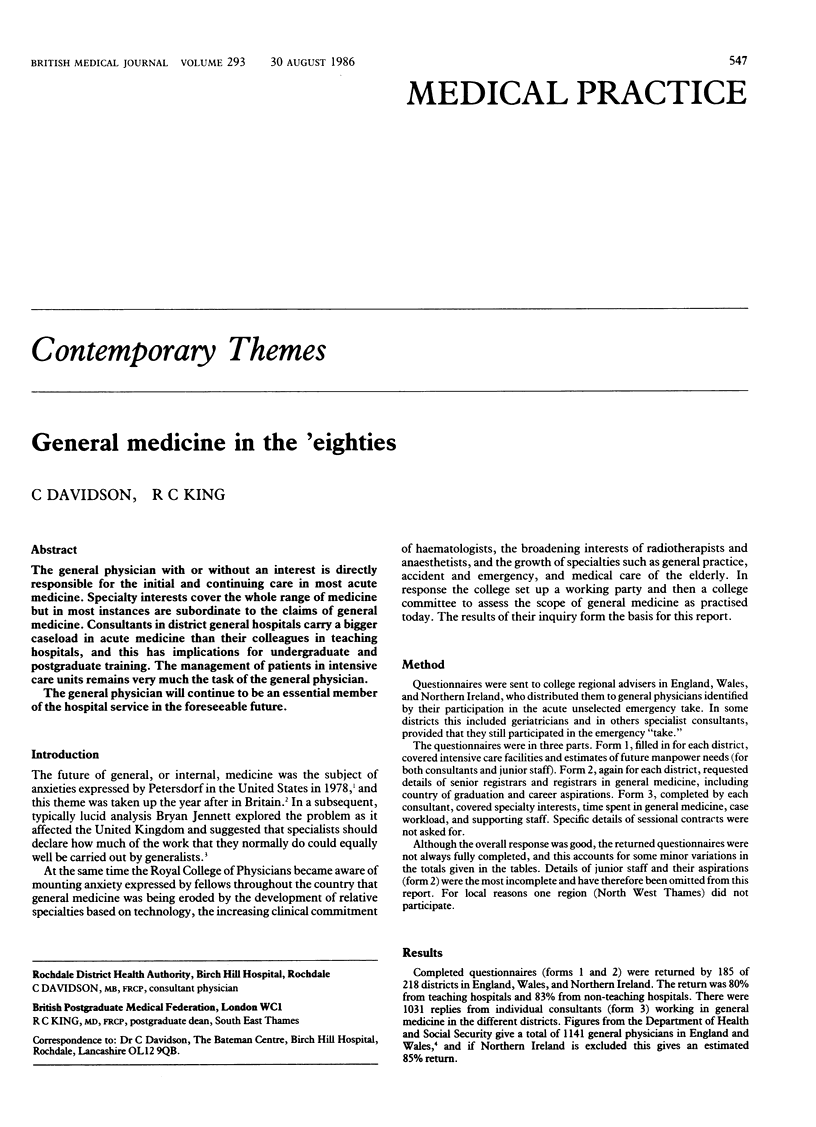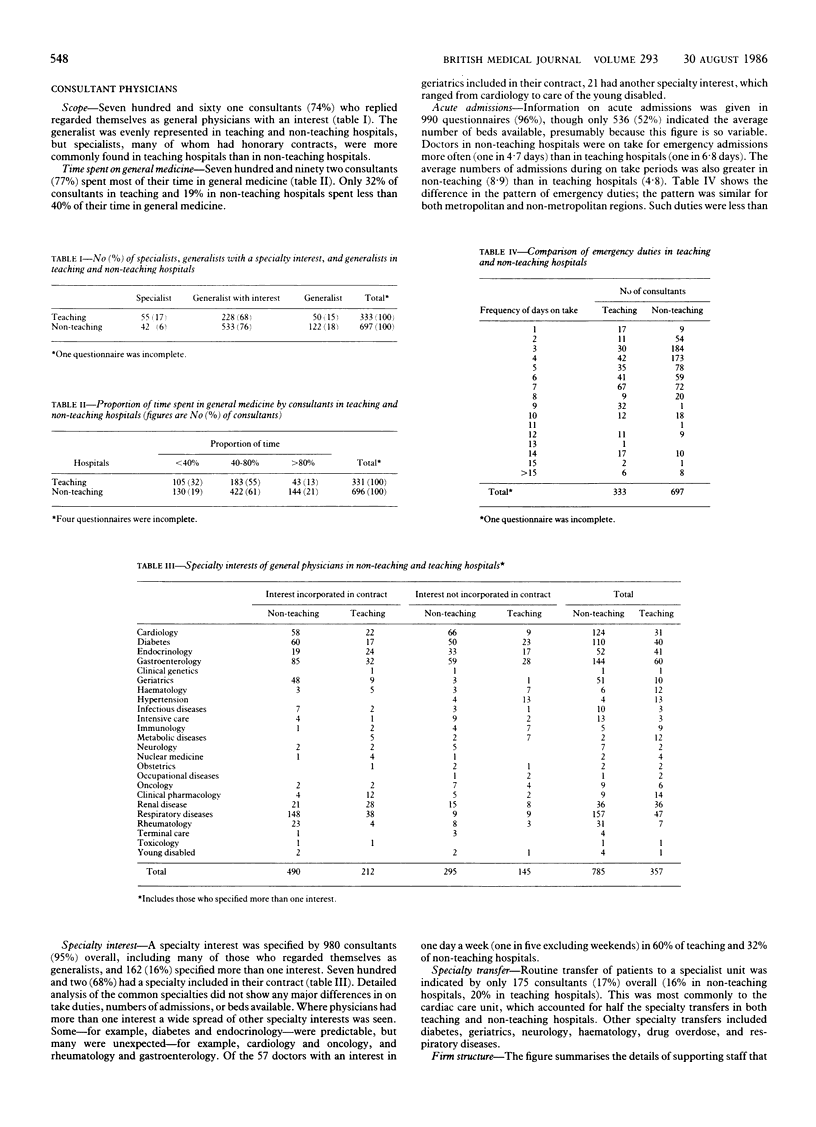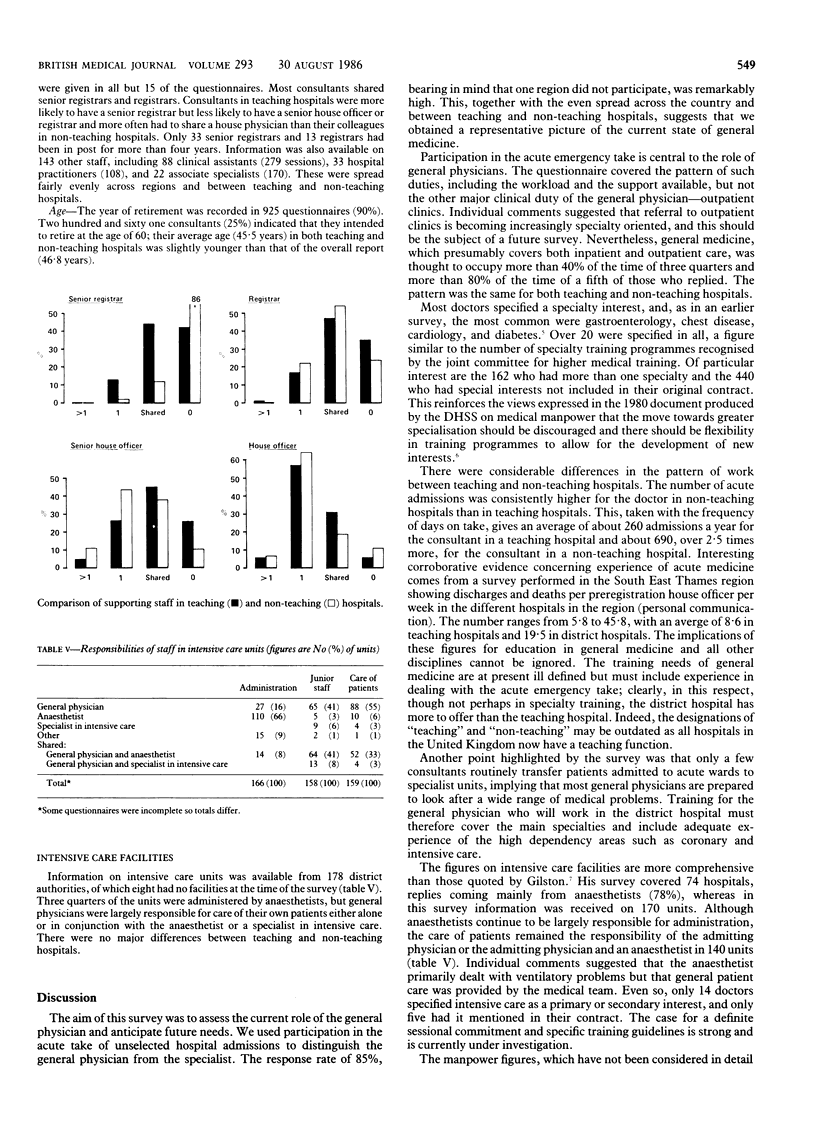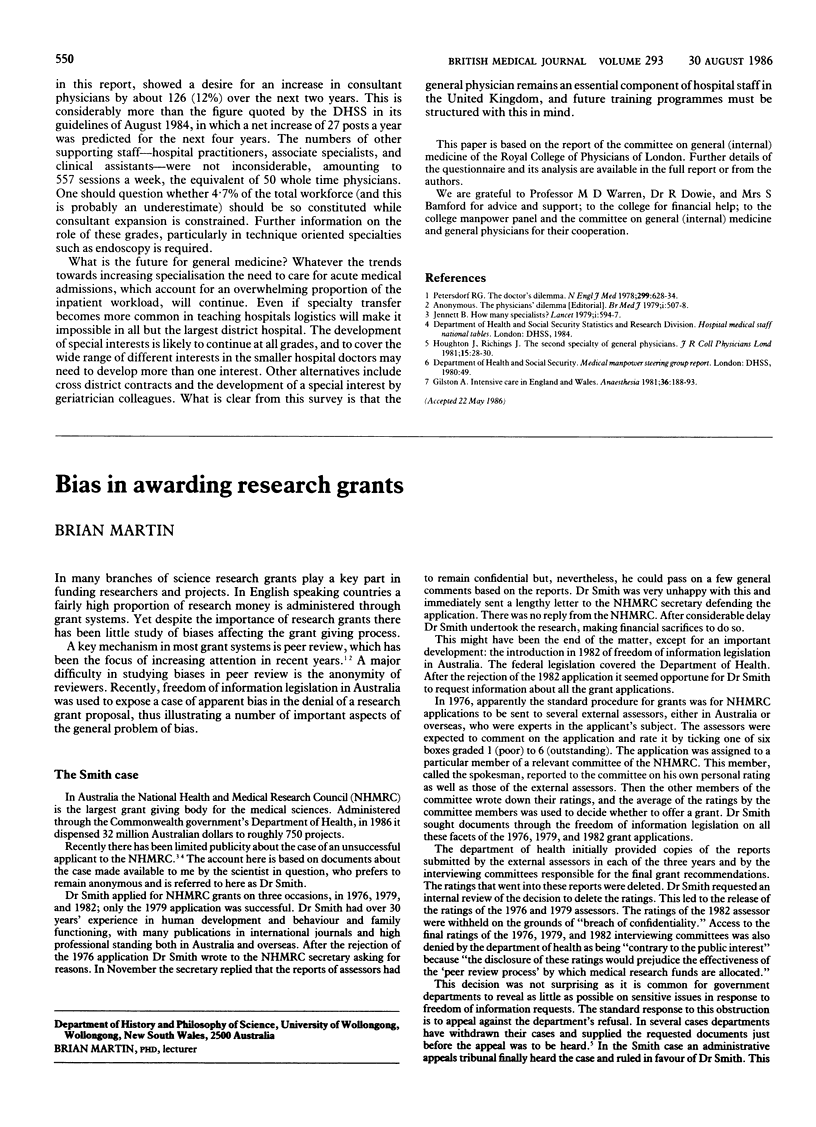Abstract
The general physician with or without an interest is directly responsible for the initial and continuing care in most acute medicine. Specialty interests cover the whole range of medicine but in most instances are subordinate to the claims of general medicine. Consultants in district general hospitals carry a bigger caseload in acute medicine than their colleagues in teaching hospitals, and this has implications for undergraduate and postgraduate training. The management of patients in intensive care units remains very much the task of the general physician. The general physician will continue to be an essential member of the hospital service in the foreseeable future.
Full text
PDF



Selected References
These references are in PubMed. This may not be the complete list of references from this article.
- Gilston A. Intensive care in England and Wales. A survey of current practice, training and attitudes. Anaesthesia. 1981 Feb;36(2):188–193. doi: 10.1111/j.1365-2044.1981.tb08722.x. [DOI] [PubMed] [Google Scholar]
- Jennett B. How many specialists? Lancet. 1979 Mar 17;1(8116):594–597. doi: 10.1016/s0140-6736(79)91018-3. [DOI] [PubMed] [Google Scholar]
- Petersdorf R. G. The doctors' dilemma. N Engl J Med. 1978 Sep 21;299(12):628–634. doi: 10.1056/NEJM197809212991204. [DOI] [PubMed] [Google Scholar]


